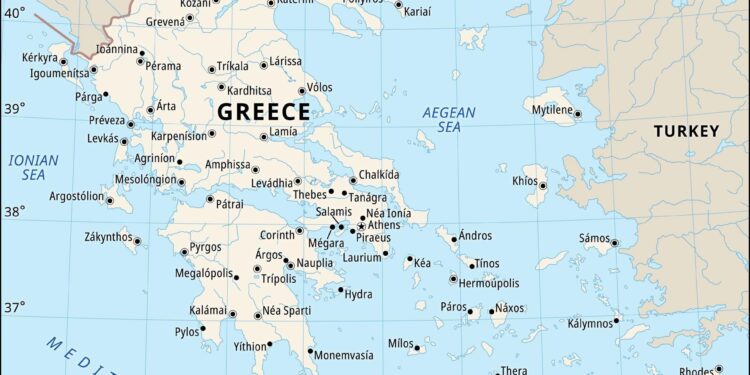Reevaluating Greece’s Treatment of Migrants: A Demand for Accountability and Reform
Recent developments regarding the treatment of migrants in Greece have prompted a senior official from Frontex,the European Border and Coast Guard Agency,to call for accountability in light of reported mistreatment. As concerns mount over Greece’s handling of migration at its borders, this statement highlights increasing unease among European leaders about the ethical implications of border control practices. The official‚Äôs remarks come amid intensified scrutiny of Greece‚Äôs policies, sparking urgent conversations about human rights and the responsibilities that EU member states hold in safeguarding vulnerable populations. This article delves into calls for accountability, assesses current conditions faced by migrants in Greece, and explores potential ramifications for the nation‚Äôs relationship with the European Union.
Intensified Scrutiny on Greece’s Migration Policies Amid Allegations of Abuse
The ongoing allegations regarding migrant abuse have led to a closer examination of how Greece manages migration. Frontex officials have voiced serious concerns about the treatment asylum seekers receive within Greek territory. Reports detailing pushbacks, unlawful detentions, and substandard living conditions within migrant camps raise significant ethical questions regarding compliance with both national laws and international standards. Critics argue that as Greece seeks to fortify its borders, its approach not only appears excessive but also indicates a disturbing trend towards normalizing harsh treatment against vulnerable groups.
The implications arising from these findings have ignited discussions about possible consequences for Greece if improvements are not implemented. Frontex representatives have suggested that without considerable changes to existing practices, they may need to reconsider their operational support in this area. Key measures under consideration include:
- Increased oversight on border enforcement practices to ensure alignment with human rights standards.
- Withdrawal of funding from border management initiatives that fail to meet established criteria.
- Adequate accountability measures for personnel implicated in reported abuses at borders.
The repercussions stemming from these actions could significantly reshape migration policy dynamics across Europe while urging Greece to align its operations with basic humanitarian principles. A coordinated response from EU institutions may also be crucial in effectively addressing these pressing issues.
Frontex Calls for Accountability and Reform Regarding Migrant Treatment
<pDuring a recent press briefing highlighting systematic abuses within Greek territory, a representative from Frontex raised urgent concerns regarding how migrants are treated‚ÄĒan alarming trend demanding immediate attention. The key issues identified include:
- Pushed Back: Allegations surrounding illegal pushbacks against migrants attempting entry into Greek territory.
- poor Living Conditions: Reports indicating inadequate facilities housing detained individuals.
- Lack of Oversight: Insufficient mechanisms available to effectively monitor migrant welfare.
This situation has galvanized many within the european Union who advocate strongly for reforms aimed at ensuring more humane treatment protocols when dealing with migrants entering or residing in Greece. There is an emphasis on implementing measures that guarantee adherence to EU directives specifically related to human rights protections. To further bolster these reform efforts, an action plan has been proposed outlining strategic steps such as:
| # Step | Description |
| 1 | Establish self-reliant monitoring bodies tasked with overseeing treatment standards applied toward migrants. |
| 2 | Allocate increased funding directed toward humanitarian assistance programs located near border areas. |
















